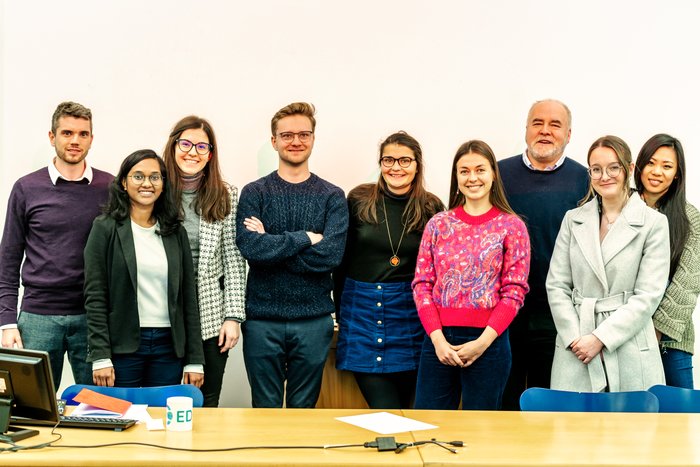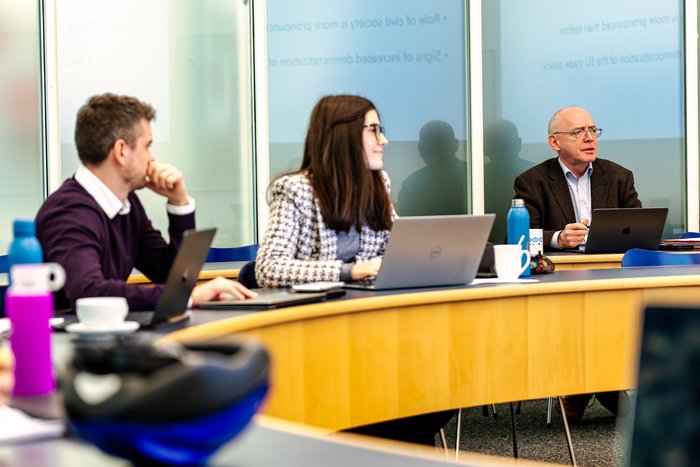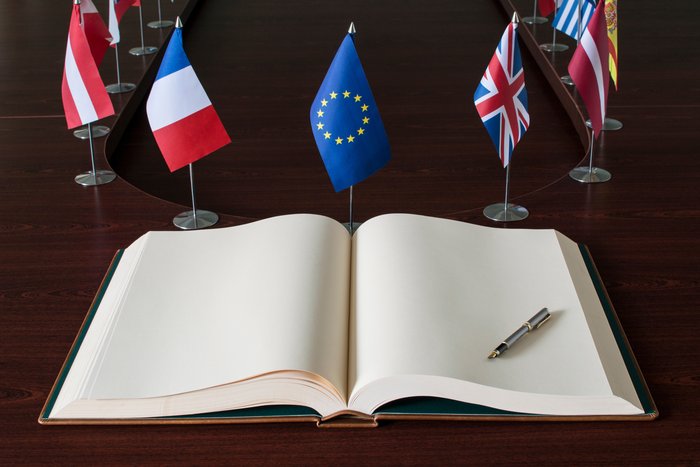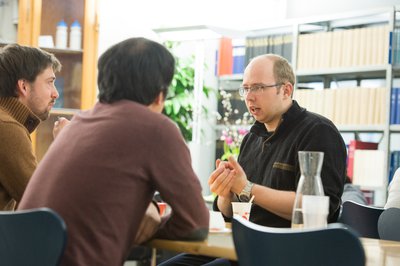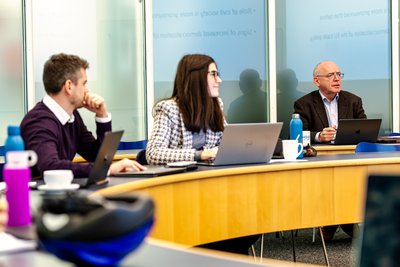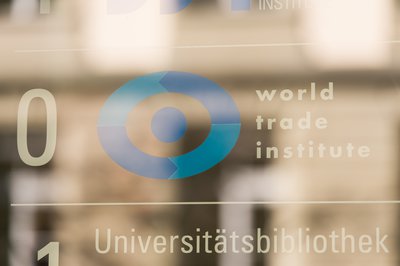2023
25-29 September 2023
PhD Course: Recent Developments in International Investment Law
Lecturers: Dr Michele Potestà, Dr Nikos Lavranos, Dr Sofía Boza, and Dr Andrea Steingruber
3 ECTS
Syllabus here
26-30 June 2023 and 3-7 July 2023
PhD Course on Input-Output and Computational General Equilibrium Models For Trade Policy Modeling
Lecturer: Eddy Bekkers and Patrick Tomberger
4 ECTS
Syllabus here
18-20 April 2023
PhD Course on Computable General Equilibrium Modelling using GAMS
Lecturer: Hugo Rojas-Romagosa
3 ECTS
Syllabus here
2022
26 - 30 September 2022
Law & Economics of International Law with a specific focus on Trade and Investment
4 ECTS
Lecturer: Prof. Anne van Aaken, "Alexander von Humboldt" Professor for Law and Economics, Legal Theory, Public International Law and European Law and Director of the Institute of Law and Economics, University of Hamburg. More information can be found in the flyer.
2021
6 - 10 December 2021
Trade Negotiations & Techniques
4 ECTS
Lecturer: Maarten Smeets (PhD), Associate Professor at St Petersburg State University and the Shanghai University of International Business and Economics (SUIBE), Senior Associate at the Clingendael Academy (Den Haag). More information can be found in the flyer. The syllabus for the course can be found here.
28 June - 9 July 2021
Globalization, Labor Market & Inequality
4 ECTS
Lecturer: Prof. Douglas Nelson, Professor of Economics at the Murphy Institute and the Department of Economics at Tulane University
More details about this course can be found in the flyer. The syllabus for the course can be found here.
18 and 19 March & 1, 2, and 9 April 2021
Shaping sustainable trade: what role for international trade law and policy?
4 ECTS
Lecturers: Dominic Coppens, PhD, Senior Associate at Sidley Austin LLP, Brussels and Nicolas Lockhart, Partner at Sidley Austin LLP, Geneva.
More details about this course can be found in the flyer.
2020
14 – 18 September 2020
The International Law of State Responsibility
4 ECTS
Lecturers: Prof. Malgosia Fitzmaurice, Professor of Public International Law at the School of Law, Queen Mary University of London and Prof. Antonios Tzanakopoulos, Associate Professor of Public International Law at the Faculty of Law and Fellow in Law at St Anne's College, University of Oxford
More details about this course can be found in the flyer.
21 – 25 September 2020
Gravity Models and Panel Econometrics
4 ECTS
Lecturer: Michael Pfaffermayr, Professor of International Economics at the University of Innsbruck, Austria and senior researcher at the Austrian Institute of Economic Research
More details about this course can be found in the flyer.
2019
9 – 13 September 2019
State Responsibility
4 ECTS
Lecturer: Tarcisio Gazzini, Professor of International Law, School of Law at University of East Anglia, England
More details about this course can be found in the flyer and recommended reading materials.
16 – 20 September 2019
Institutions and the Political Economy of Development
4 ECTS
Lecturer: Prof. Axel Dreher, Professor of Economics, Chair of International and Development Politics, Ruprecht-Karls-University Heidelberg, Germany
More details about this course can be found in the flyer and syllabus.
4 – 8 November 2019
Economic Network Analysis
4 ECTS
Lecturer: Prof. Peter Egger, Professor of Applied Economics, ETH Zürich, Switzerland
More details about this course can be found in the flyer.
2018
27 July – 3 August 2018
Applied General Equilibrium Theory
4 ECTS
Lecturer: Prof Douglas Nelson
More details about this course can be found in the flyer.
27 – 31 August 2018
Foreign Direct Investment
4 ECTS
Lecturer: Prof Ronald Davies
More details about this course can be found in the flyer.
10 – 14 September 2018
Treaty Interpretation
4 ECTS
Lecturer: Prof Micheal Hahn, Prof Gabrielle Marceau, Prof Georg Nolte
More details about this course can be found in the flyer.
17 – 21 September 2018
Bayesian Econometrics
4 ECTS
Lecturer: Prof Sylvia Frühwirth-Schnatter
More details about this course can be found in the flyer.
2017
7 – 11 August 2017
Political Economy of Globalisation
4 ECTS
Lecturer: Prof Douglas Nelson
More details about this course can be found in the flyer.
14 – 18 August 2017
Quantitative Trade Policy Modelling
4 ECTS
Lecturer: Dr Eddie Bekkers, Prof Joseph Francois
More details about this course can be found in the course flyer.
4 – 8 December 2017
Treaty Interpretation
4 ECTS
Lecturer: Dr Isabelle Van Damme, Mr Graham Cook
More details about this course can be found in the flyer.
2016
22 – 26 August 2016
International Trade, Labour Markets and Development
4 ECTS
Lecturer: Dr Eddie Bekkers
More details about this course can be found in the flyer.
29 August – 2 September 2016
Advanced Panel Data Econometrics
4 ECTS
Lecturer: Prof Michael Pfaffermayr
More details about this course can be found in the flyer.



